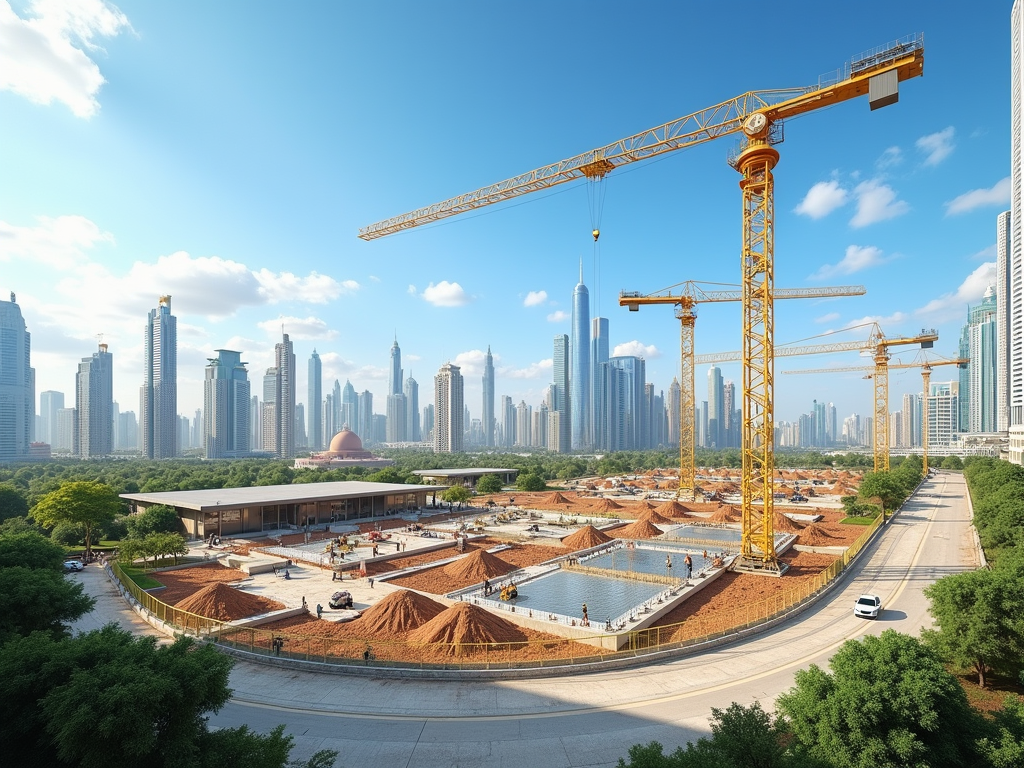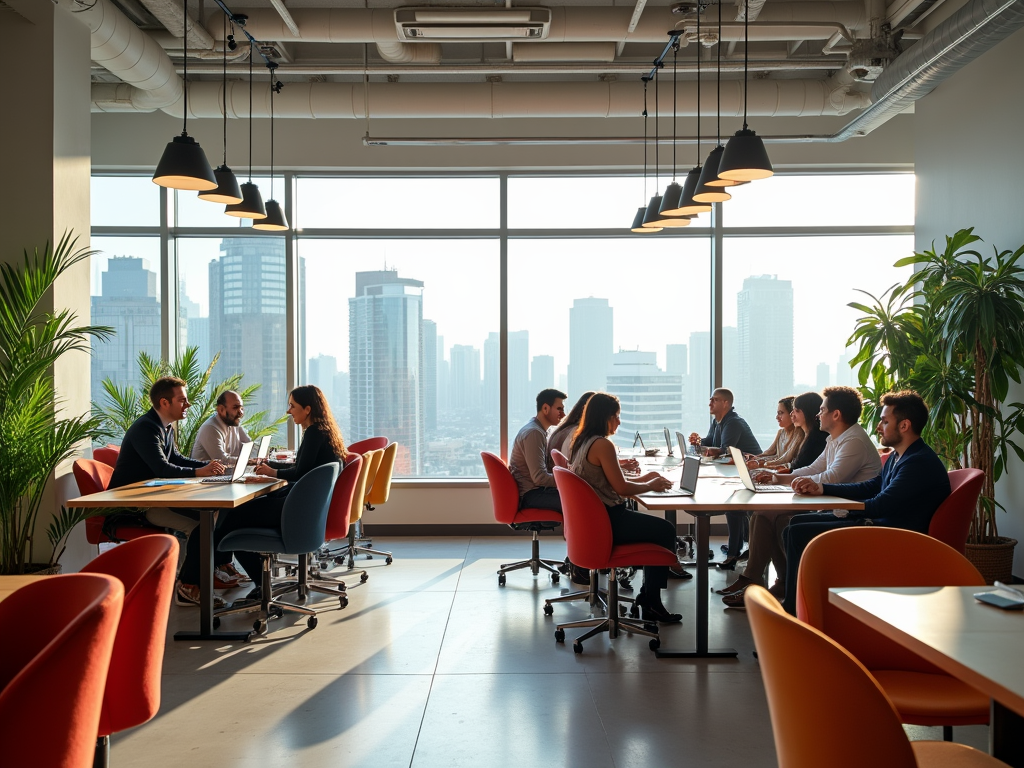Dubai’s commercial property market is undergoing significant evolution, driven by various factors, including economic diversification, technological advancements, and changing consumer preferences. As the city positions itself as a global business hub, the commercial real estate sector is adapting to meet the needs of modern businesses. Today, we will delve into the key trends and influences reshaping Dubai’s commercial property landscape, examining how these developments present both challenges and opportunities for investors, developers, and businesses alike.
Growing Demand for Flexible Workspaces

One notable evolution in Dubai’s commercial property market is the increasing demand for flexible workspaces. The emergence of remote work and the gig economy has transformed how businesses operate, leading to a surge in demand for co-working spaces and serviced offices. Organizations are now seeking environments that promote collaboration and adaptability, which has fostered the growth of innovative office designs.
In addition to traditional office spaces, companies are gravitating towards:
- Co-working spaces that offer shared amenities.
- Flexible lease terms to accommodate varying business needs.
- Community-focused environments that encourage networking and creativity.
As the demand for such workspaces grows, developers are reimagining commercial properties to create dynamic environments that foster productivity and well-being. This shift not only helps businesses save on costs but also attracts a diverse workforce, positioning Dubai as an appealing destination for international companies.
Impact of Technology on Commercial Real Estate

Technology is reshaping Dubai’s commercial property market through enhanced efficiencies and improved customer experiences. From augmented reality property tours to advanced building management systems, the integration of tech in real estate enables better decision-making and optimization of space usage. Additionally, property management companies are increasingly adopting digital platforms that streamline operations, from leasing to maintenance.
Key technological trends influencing this evolution include:
- Smart building technologies that enhance energy efficiency and reduce operational costs.
- Data analytics to identify market trends and assess investment opportunities.
- Blockchain applications for secure and transparent transactions.
Ultimately, by embracing technological innovations, Dubai’s commercial property market can improve its overall efficiency while keeping pace with evolving market demands. This transformation signifies a shift towards sustainability and transparency, essential aspects in attracting foreign investment.
Regulatory Changes Facilitating Investment
As Dubai aims to solidify its status as a leading global business hub, regulatory changes play a crucial role in reshaping the commercial property landscape. The government has implemented several measures aimed at encouraging foreign investment and fostering a more attractive investment climate. These initiatives have a direct impact on the commercial real estate market, promoting growth and development.
Some notable regulatory changes include:
- Extended foreign ownership rights in commercial properties.
- Lower property registration fees and streamlined processes.
- Introduction of long-term visas for investors and skilled professionals.
These changes create a more favorable environment for investors and businesses alike. By reducing bureaucratic hurdles and enhancing property rights, Dubai is paving the way for an influx of foreign capital, which, in turn, propels the commercial property market towards unprecedented growth.
The Shift Toward Sustainable Development
Sustainability is becoming increasingly important in Dubai’s commercial property market as developers and investors increasingly prioritize eco-friendly practices. With the UAE government focusing on environmental responsibility and sustainability, projects that align with these values are more likely to thrive. This shift is not only a response to global climate change concerns but also an essential factor in attracting international tenants who prioritize sustainability.
Key components of this sustainability trend include:
- Green building certifications that promote energy efficiency and responsible resource management.
- Incorporation of renewable energy sources in commercial properties.
- Design practices that enhance the environmental footprint of new developments.
Commercial spaces that integrate sustainable design and operations stand to benefit from lower operational costs, greater tenant satisfaction, and enhanced brand reputation. As sustainability becomes ingrained in Dubai’s development ethos, the impact on the commercial real estate market will be profound and far-reaching.
The evolution of Dubai’s commercial property market is marked by a convergence of factors such as technological advancements, regulatory changes, and the increasing demand for flexible workspaces. As the region embraces sustainability and innovation, the commercial real estate landscape will continue to transform, presenting new opportunities for businesses and investors. Notably, these evolutions are indicative of a broader shift towards a more dynamic and resilient market that meets the diverse needs of its stakeholders. As Dubai positions itself as a global business epicenter, its commercial property market is poised for sustained growth and development.
Frequently Asked Questions
1. What are the key factors driving the evolution of Dubai’s commercial property market?
Key factors include a growing demand for flexible workspaces, technological advancements, regulatory changes, and a focus on sustainability.
2. How has technology impacted Dubai’s real estate sector?
Technology has improved operational efficiencies, enhanced customer experiences, and facilitated better property management through tools like data analytics and smart building technology.
3. What sustainability trends are emerging in Dubai’s commercial properties?
Emerging sustainability trends include green building certifications, the use of renewable energy, and eco-friendly design practices that minimize environmental impact.
4. How are regulatory changes influencing foreign investment in Dubai’s commercial property market?
Regulatory changes such as extended foreign ownership rights, lower registration fees, and long-term visa programs are creating a more attractive investment climate.
5. What is the future outlook for the commercial property market in Dubai?
The future outlook appears positive, with continued growth anticipated as the market embraces flexibility, technology, and sustainable development, aligning with global business trends.
